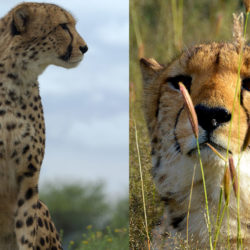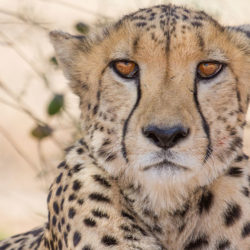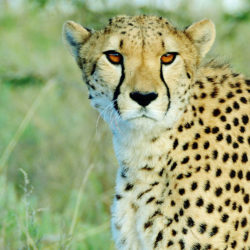Field Scans and Clinic Exams with SoundVet
-
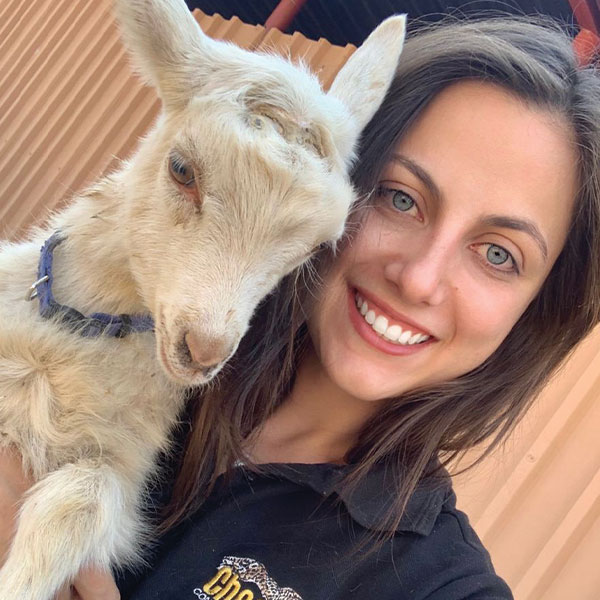
- by Ana Basto November 5, 2021
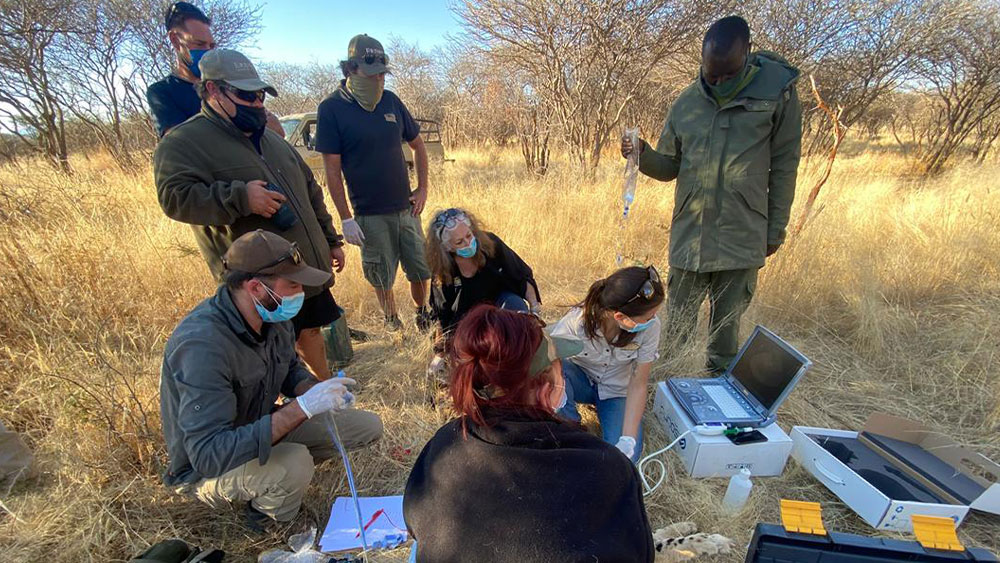
Using the SoundVet system, we recently found out that released cheetah Georgia was pregnant at her recollaring and exam in Erindi Private Game Reserve. Her two previous sub adult offspring, one male and one female, were still living with her. Having the information that she was carrying cubs helped us to have a better understanding of her behavior. We would not have expected her to begin denning behaviors with her older cubs in tow. CCF’s researchers and Erindi’s ecology team were monitoring her behavior and noticed that her movement patterns began to narrow. When they went to investigate they found that she had given birth to two new cubs.
Georgia moved her cubs to a spot that was not easily accessible on foot, and shortly after we noticed her movements had completely stopped. We knew there was a problem but not what the problem was so Erindi’s team went out to check on her. They discovered that her den had been attacked. Further investigation at the site confirmed our fears, both she and her new cubs had been killed.
Forensic samples were collected from the site and will be taken to our genetics laboratory at CCF’s Centre where we are building a collection of saliva, hair, and scat from predation sites. As our capacity expands in the lab we will be able to use genetic analysis to learn more about what animal(s) are responsible for the predation. This will help inform the findings of our field staff who already use their bush tracking skills when investigating at predation sites on local farms. Leopards, cheetahs, and African wild dogs can all kill livestock, but they all hunt in different ways. Knowledge of the type of predator that is killing goats and sheep helps inform CCF’s education team on how to instruct better livestock management techniques in each particular case.
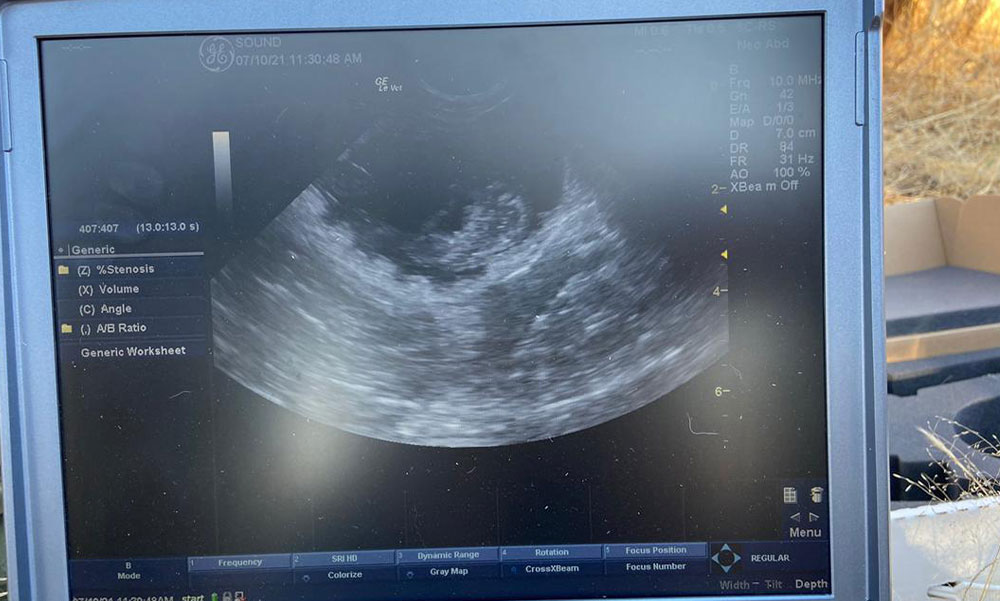
Georgia’s two sub adult cubs escaped and were located (still together) about a week later. While we are saddened by the loss of Georgia and her new pair of cubs, we are very thankful for her success at raising the previous pair, now named after the capitals of two Georgias, female = Tbilisi (the country in Eastern Europe) and male = Atlanta (the state in the USA). We were able to collar the female and will continue to monitor these two visually. They will soon part company since they are mixed sex siblings, male cheetah siblings would stay together to form a lifelong coalition but females live a solitary life, usually leaving their siblings around two years of age. We hope to be able to collar the male soon and we will most likely use our SoundVet system again during that exam.
Meanwhile, in our clinic at CCF’s Centre in Namibia we have been using the same ultrasound system to perform scans on our resident cheetahs and Livestock Guarding Dogs. We check up on the total health of our resident cheetahs in regularly scheduled health exams performed under anesthesia. We also take semen samples from male cheetahs for analysis and preservation in our Genome Resource Bank.
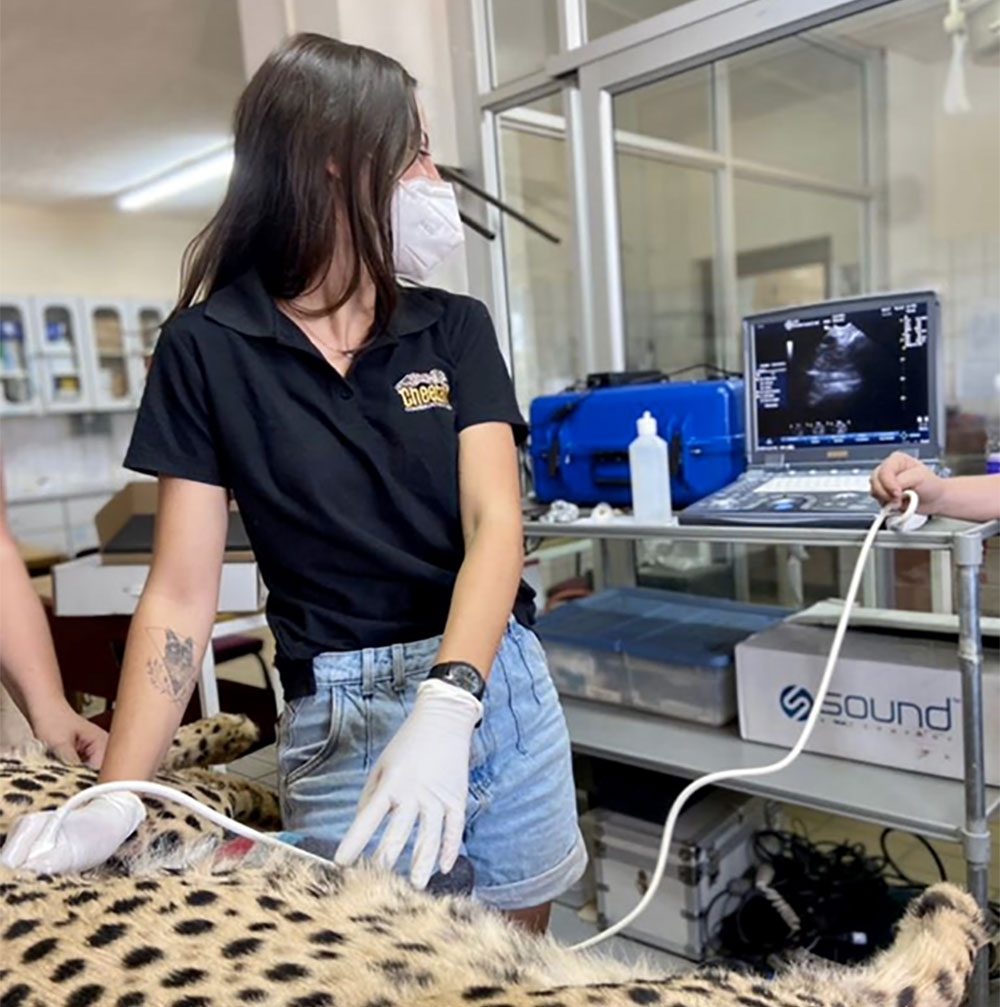
Our Livestock Guarding Dog breeding efforts have benefited from the SoundVet machine. Guarding dogs Lisboa-Bella and April had their pregnancies diagnosed using it and we have recently (Oct 25) done a pregnancy diagnosis on guarding dog Mia, and she is pregnant! Also on the Model Farm, we use it in goats, but more sporadically, usually to double check if they are pregnant. CCF separates the pregnant goats from the herd to help manage their care and feeding. We also use the scanner to check their udders.
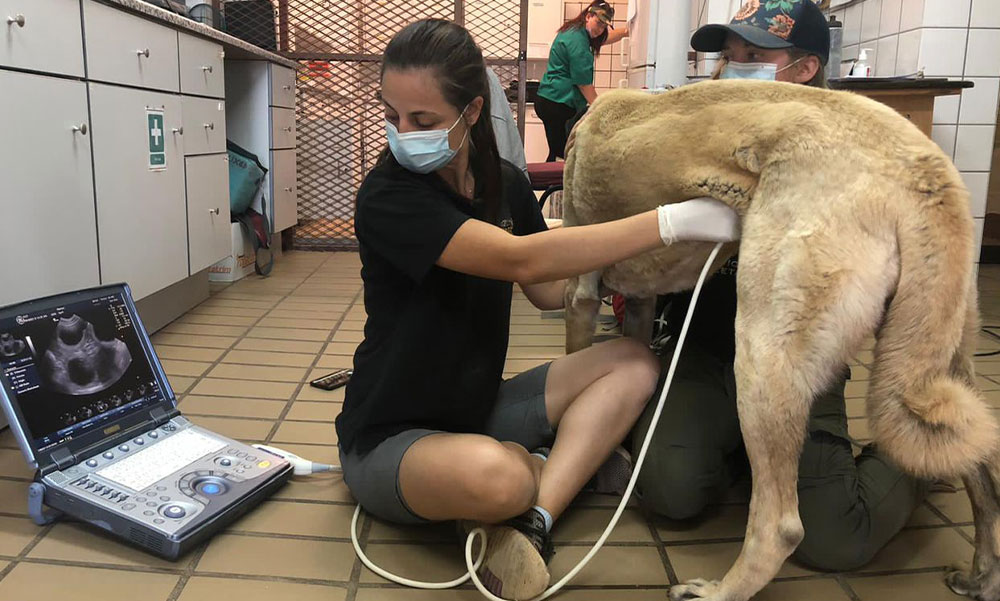
One of the aspects I like the most about the machine is that you can save the exams from each patient, so we can always go back to that exam and evaluate it again or compare it to new scans. The company also gave CCF’s vets special training on a video call with their representative. We really appreciated it because it allowed us to use more functions of the machine so we can provide better care to our animals.
Related Reading
-
April 5, 2022
Eulogies for Ron and Khayjay -
October 18, 2021
Eulogy for Resident Cheetah B2 -
September 29, 2021
Eulogy for Resident Cheetah Rohini-Tallala

